Figure 1: Player State Machine
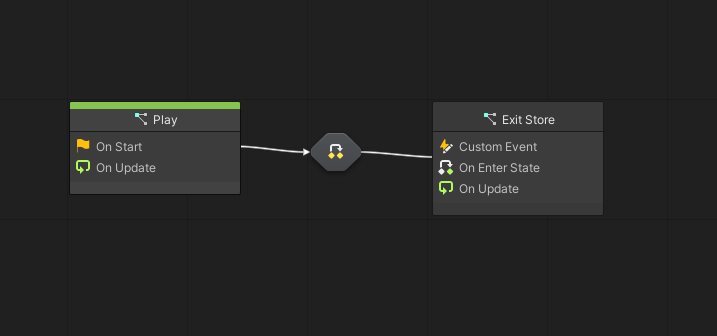
Overview of Player states.
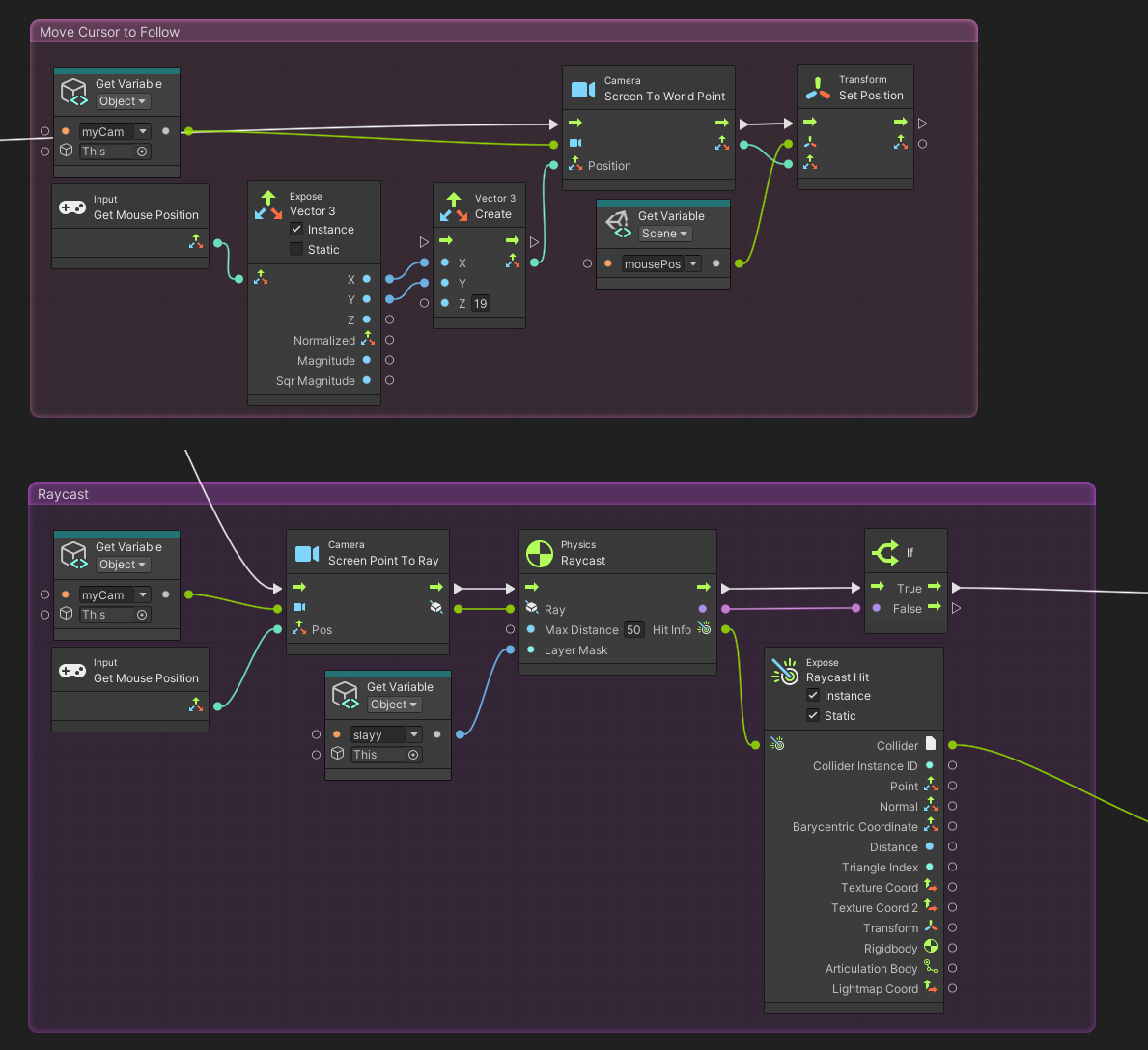
Play / Raycasting for the player.
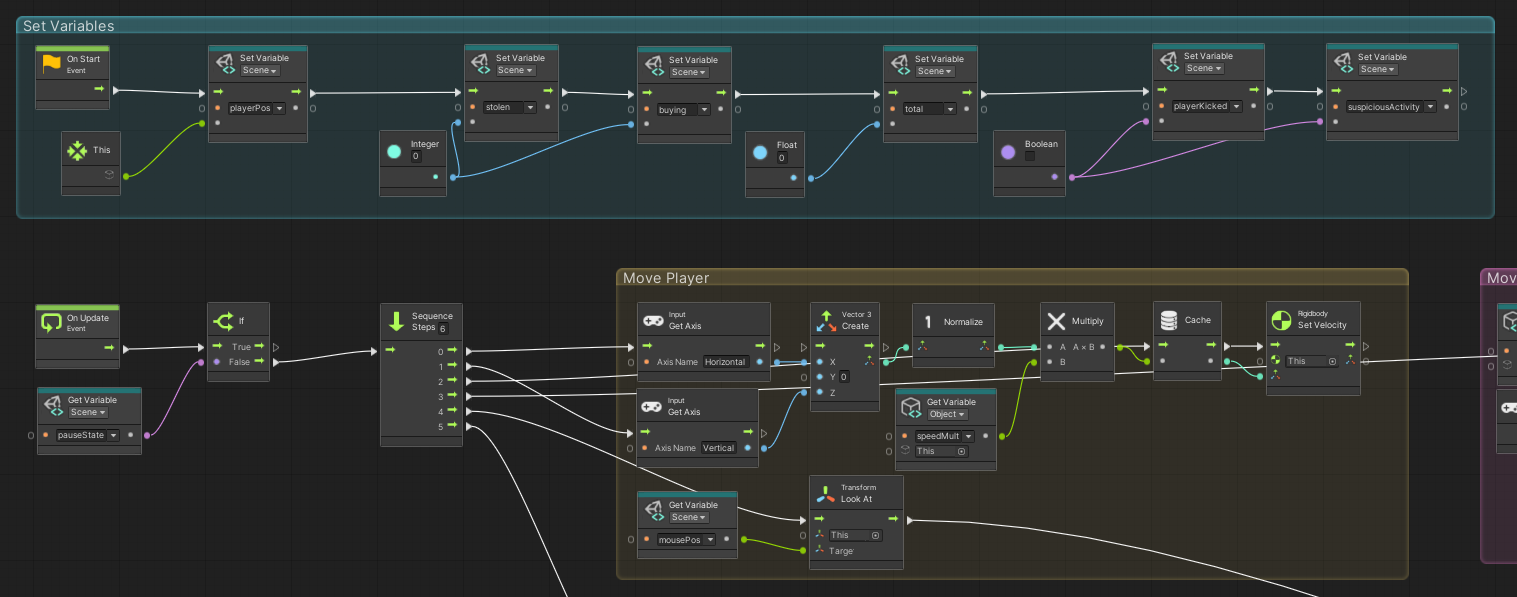
Play / Setting variables and moving the player.
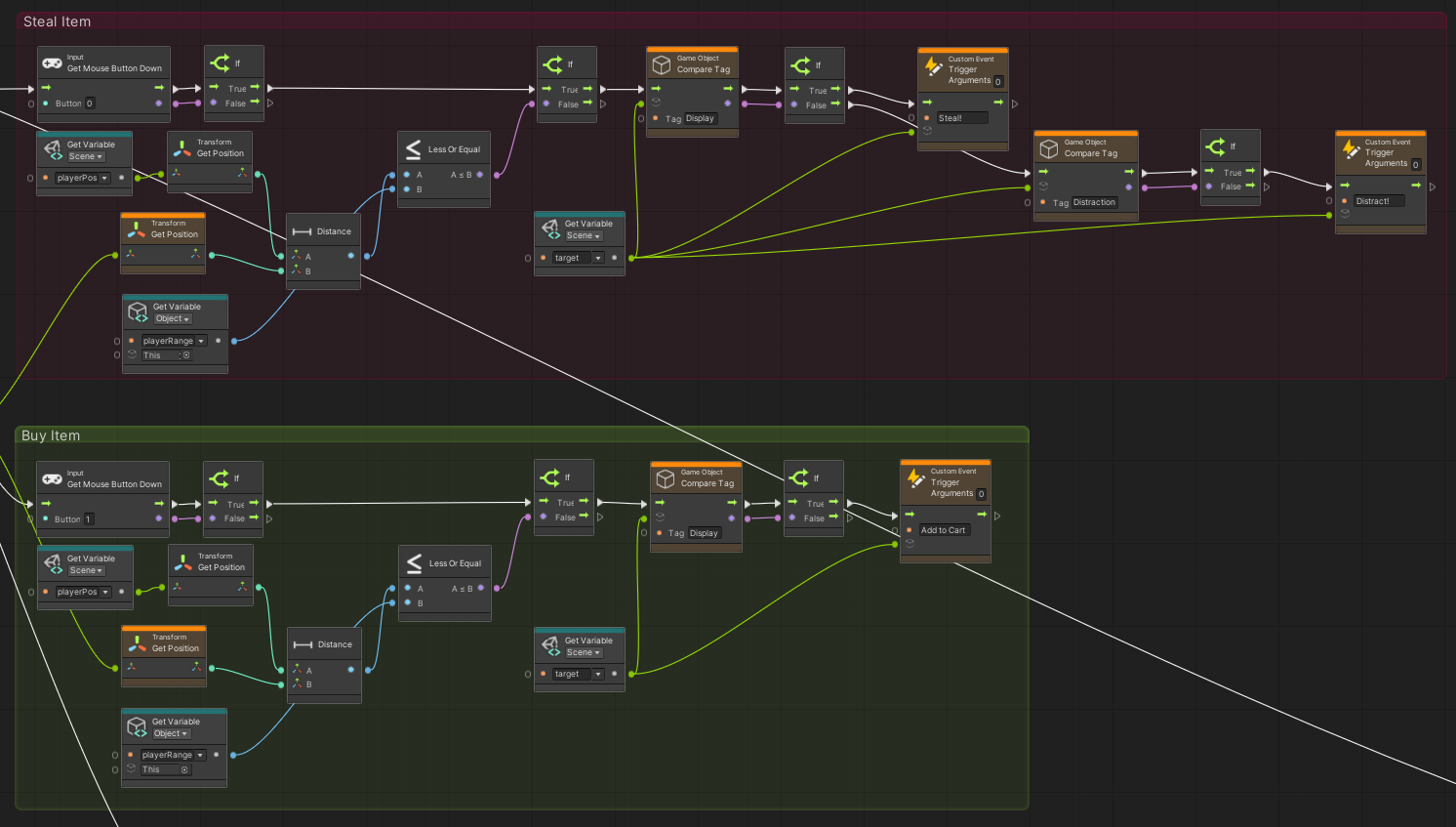
Play / Buying and stealing items.
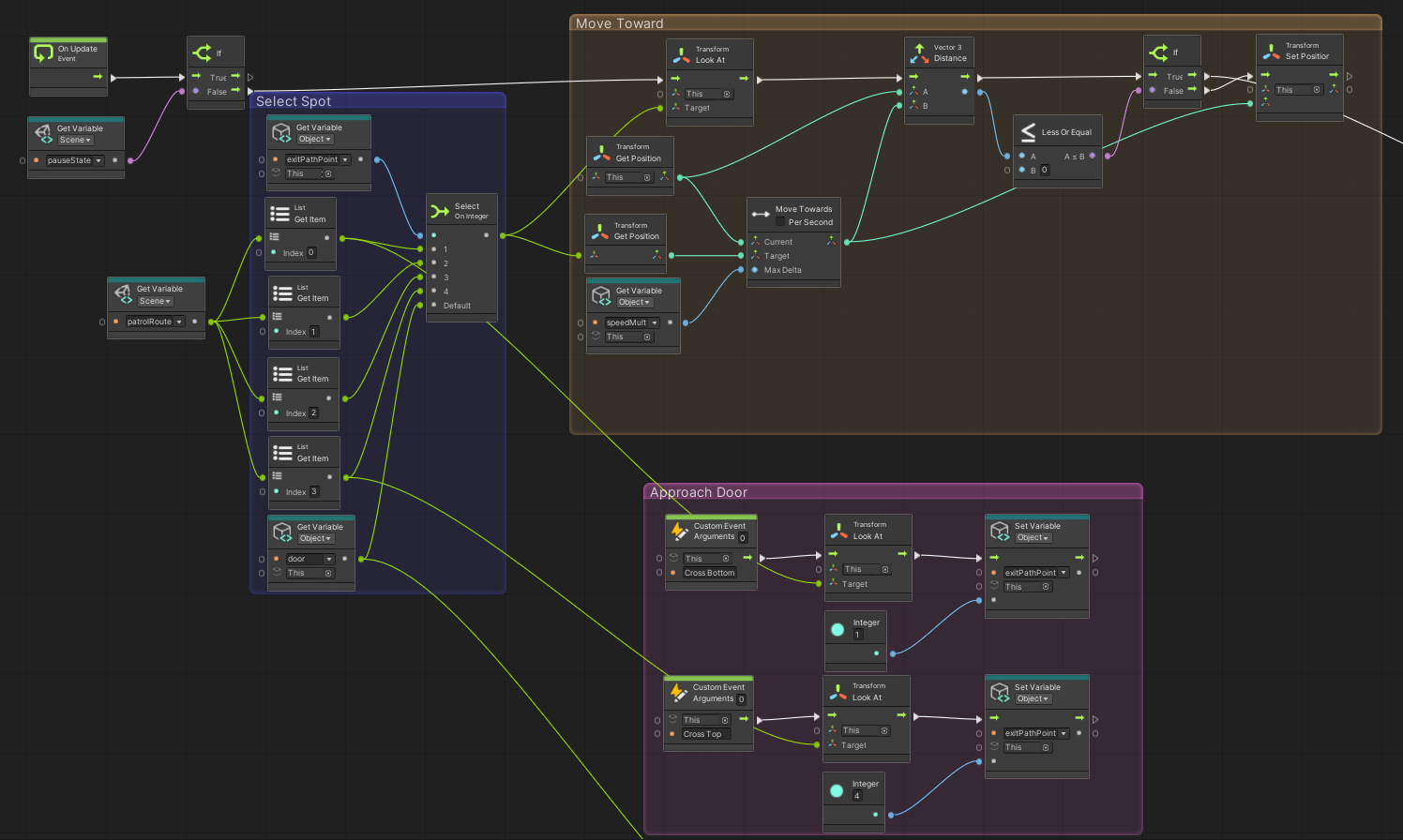
Exit / Move the player toward their destination.
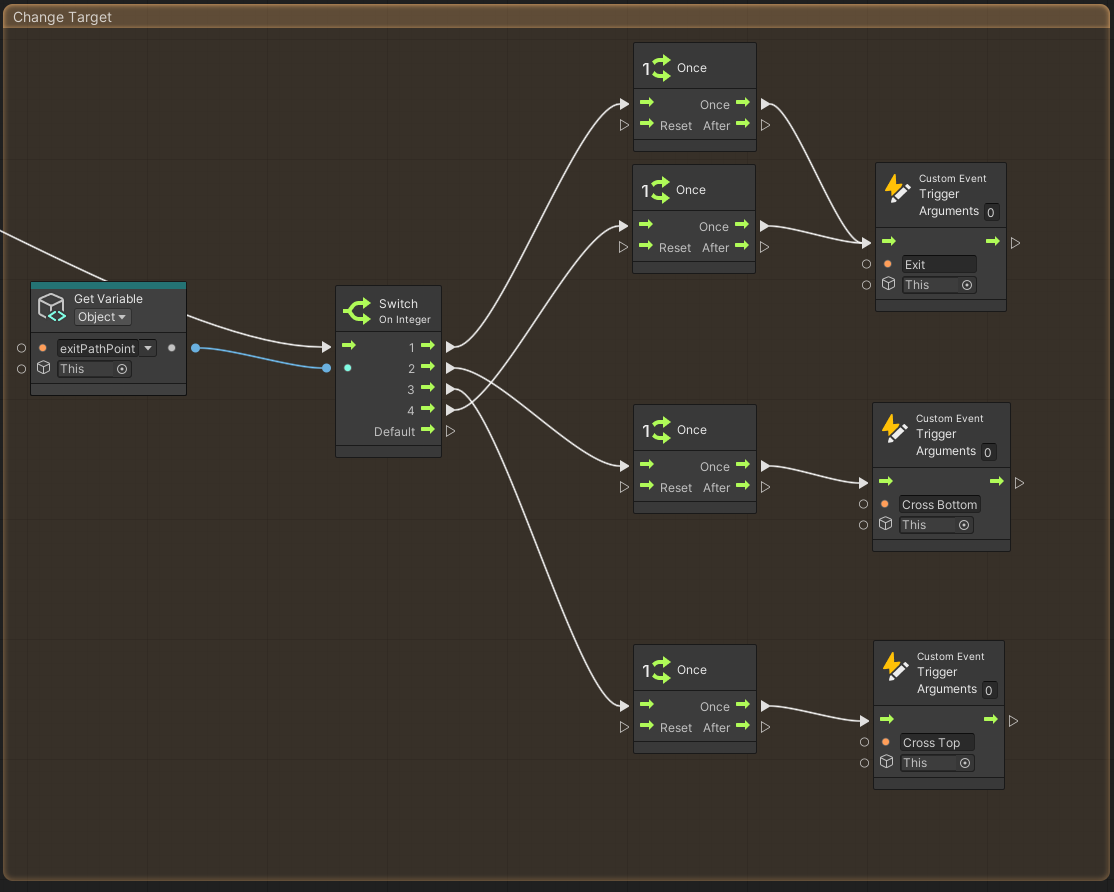
Exit / Transition between points.
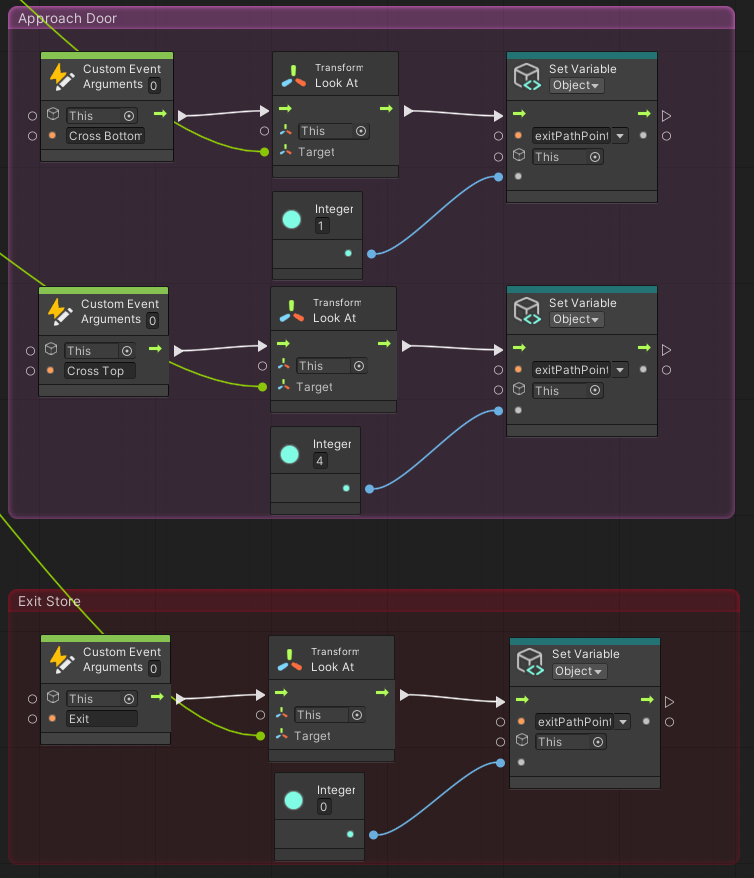
Exit / Approach and exit.
Figure 2: Displays and Distractions

Display / Add to cart.

Display / Steal item.

Distraction / Activate and call the staff.
Figure 3: Enemy State Machine
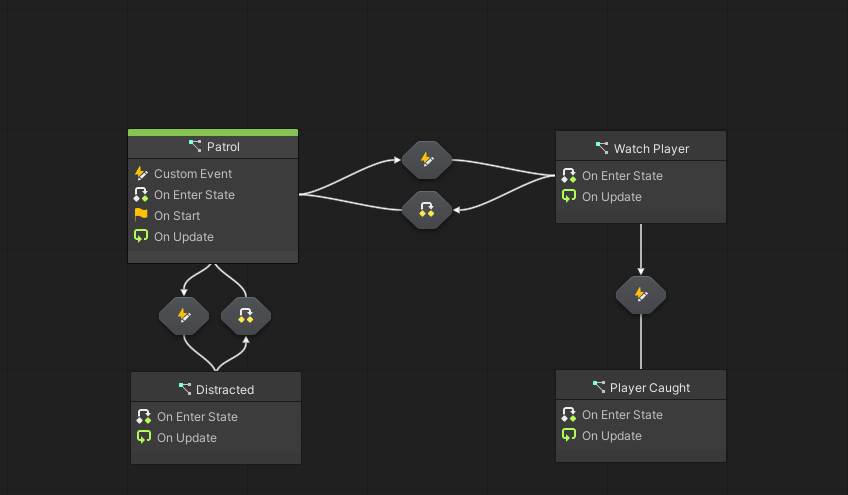
Overview of Enemy states.
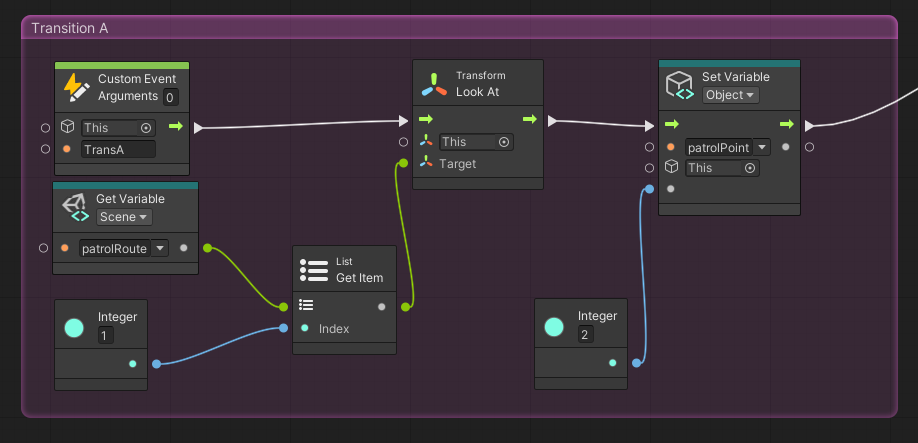
Patrol / Example of transitioning between patrol points.

Patrol / Moving the enemy between patrol points, and check for Suspicious activity.

Distracted / Being called and fixing the distraction.
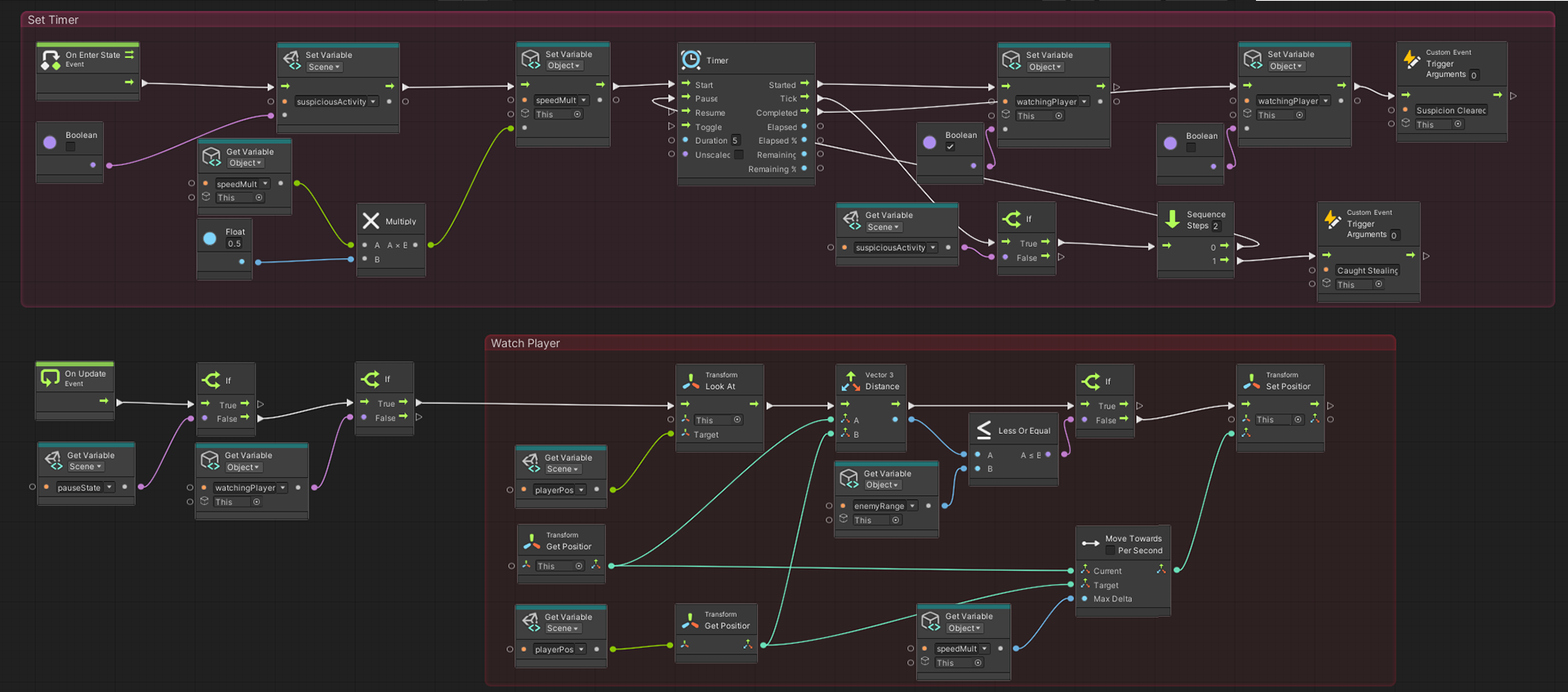
Monitoring the player's behavior.
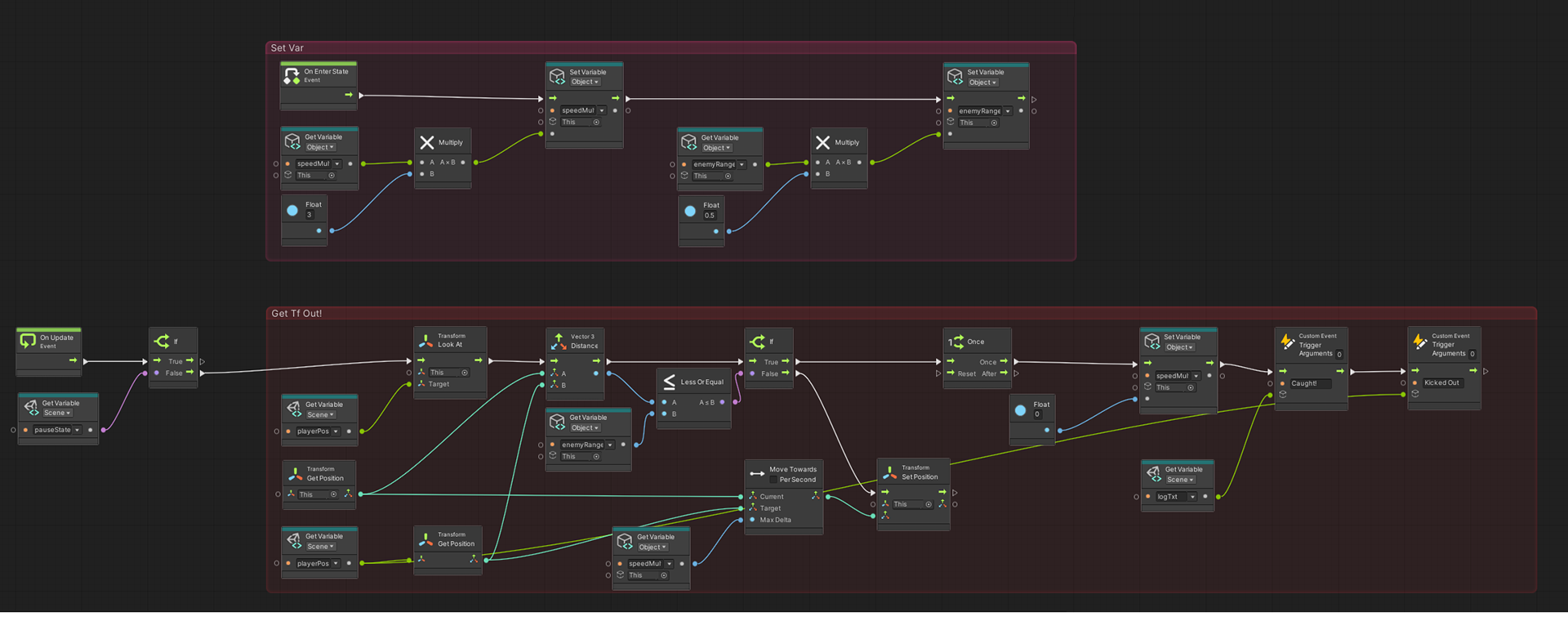
Kicking the player out of the store.
Figure 4: Cashier interactions.
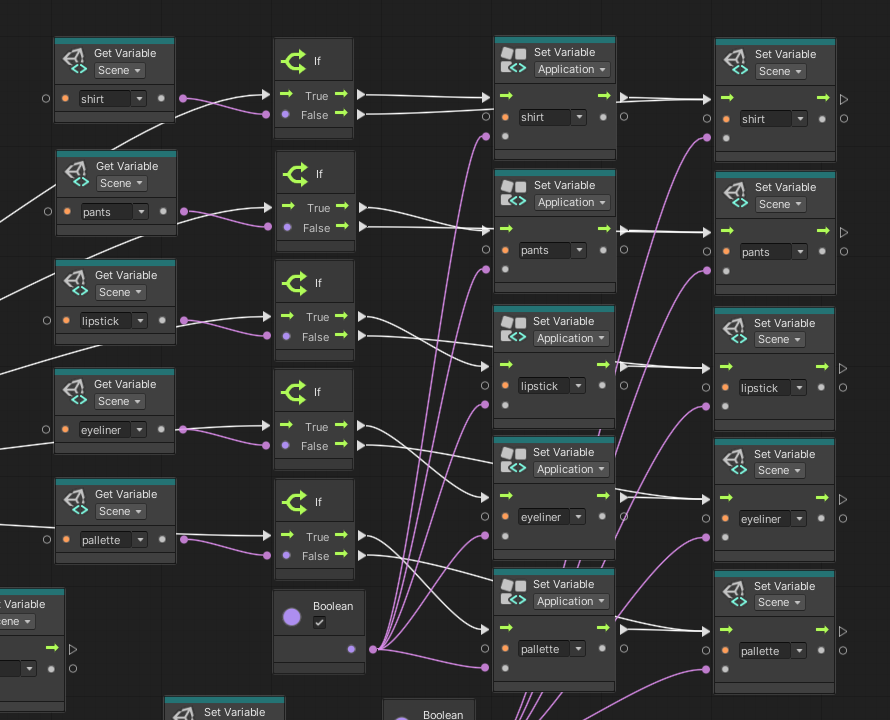
Cashier / Setting variables for bought items.
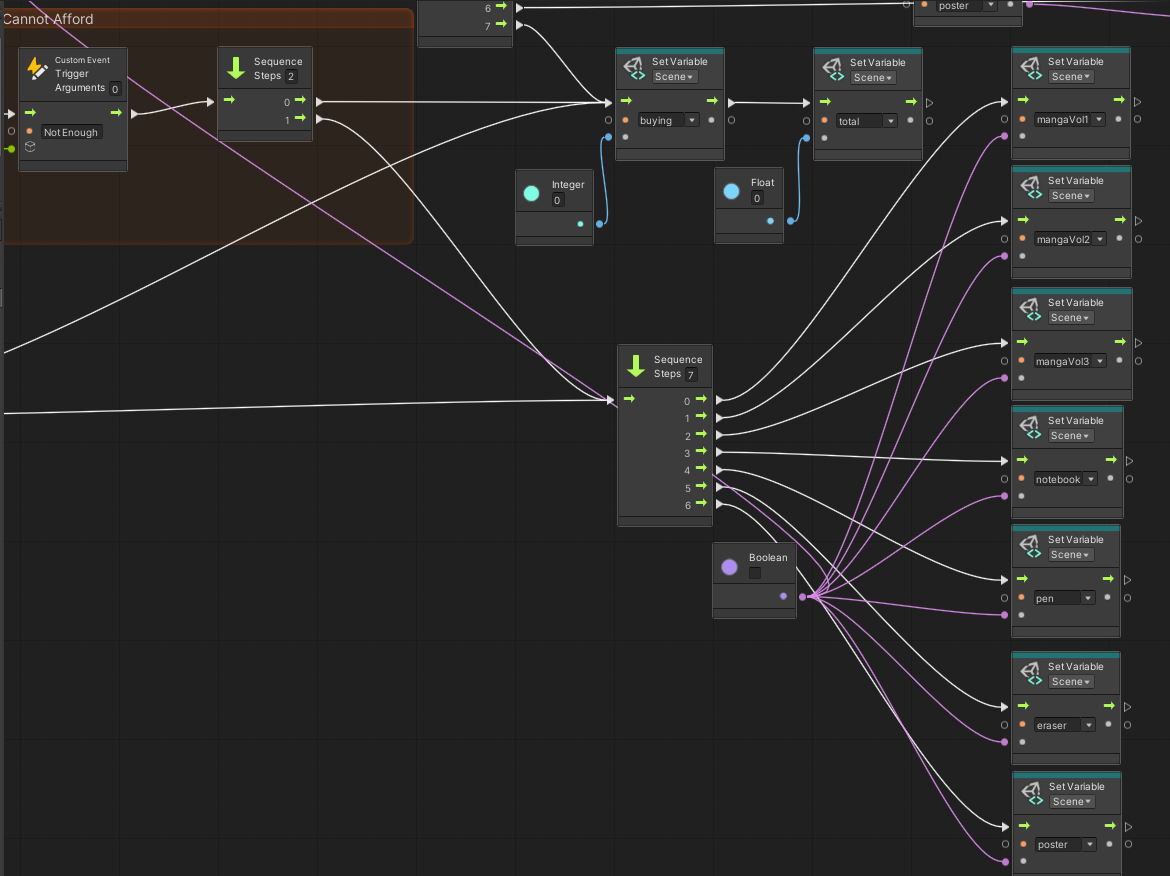
Cashier / Resetting scene variables for un-bought items.

Cashier / Interacting with the Player.
Figure 5: Pawn Clerk interaction.